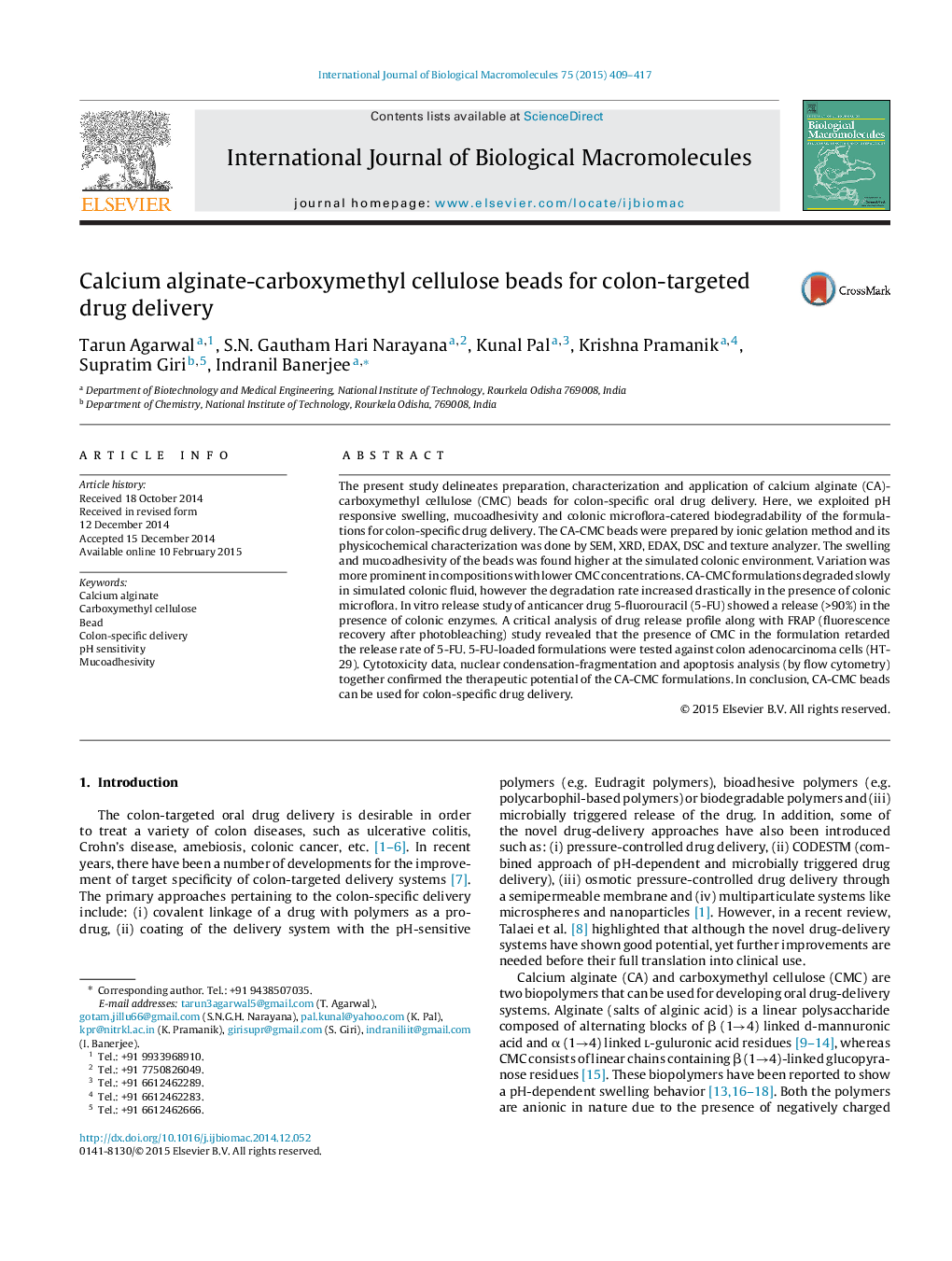| Article ID | Journal | Published Year | Pages | File Type |
|---|---|---|---|---|
| 8331792 | International Journal of Biological Macromolecules | 2015 | 9 Pages |
Abstract
The present study delineates preparation, characterization and application of calcium alginate (CA)-carboxymethyl cellulose (CMC) beads for colon-specific oral drug delivery. Here, we exploited pH responsive swelling, mucoadhesivity and colonic microflora-catered biodegradability of the formulations for colon-specific drug delivery. The CA-CMC beads were prepared by ionic gelation method and its physicochemical characterization was done by SEM, XRD, EDAX, DSC and texture analyzer. The swelling and mucoadhesivity of the beads was found higher at the simulated colonic environment. Variation was more prominent in compositions with lower CMC concentrations. CA-CMC formulations degraded slowly in simulated colonic fluid, however the degradation rate increased drastically in the presence of colonic microflora. In vitro release study of anticancer drug 5-fluorouracil (5-FU) showed a release (>90%) in the presence of colonic enzymes. A critical analysis of drug release profile along with FRAP (fluorescence recovery after photobleaching) study revealed that the presence of CMC in the formulation retarded the release rate of 5-FU. 5-FU-loaded formulations were tested against colon adenocarcinoma cells (HT-29). Cytotoxicity data, nuclear condensation-fragmentation and apoptosis analysis (by flow cytometry) together confirmed the therapeutic potential of the CA-CMC formulations. In conclusion, CA-CMC beads can be used for colon-specific drug delivery.
Keywords
Related Topics
Life Sciences
Biochemistry, Genetics and Molecular Biology
Biochemistry
Authors
Tarun Agarwal, S.N. Gautham Hari Narayana, Kunal Pal, Krishna Pramanik, Supratim Giri, Indranil Banerjee,
